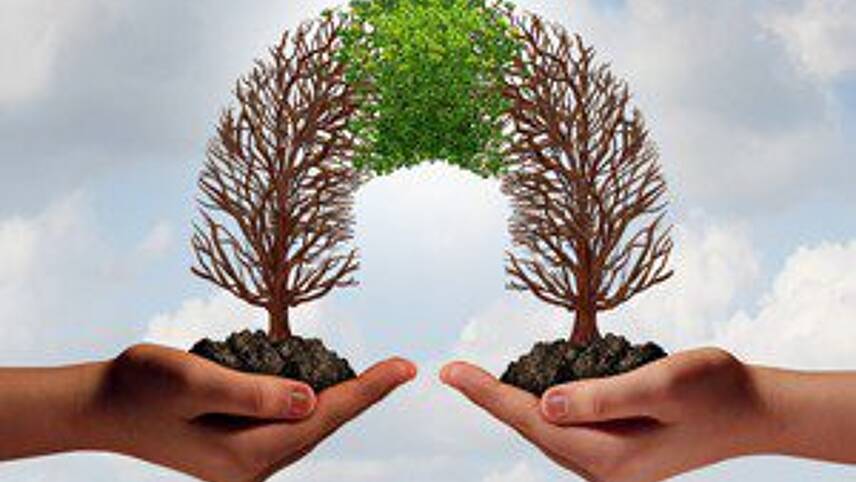Register for free and continue reading
Join our growing army of changemakers and get unlimited access to our premium content

Sharing knowledge for the greater good was reportedly behind electric carmaker Tesla Motors’ decision in 2014 to make details of its technology publicly available. The company said this was to encourage other car manufacturers to expand beyond gasoline-burning vehicles.
Sharing knowledge and best practice is a key aim of the Natural Capital Coalition’s new Operations Group, which was launched last month and will be led by Coalition member AECOM. The plan is to give Natural Capital Coalition members a platform to share ideas and best practice, as well as discuss challenges associated with undertaking assessments of natural capital impacts and dependencies.
By improving businesses’ ability to systematically integrate nature into strategy and operations, the group aims to help improve sustainability performance globally. Representatives from numerous industries will be involved in the group, including the construction, food and beverage, property, and power & utilities sectors. Crucially, the group will focus on the practical application of the Natural Capital Protocol, which will be launched by the Natural Capital Coalition in July. Applicable globally and across multiple business contexts, the Protocol and accompanying sector guides will provide a standardised framework for businesses to measure and value their direct and indirect impacts and dependencies on natural capital.
The introduction of the new Operations Group is well timed. Natural capital is still in its infancy and many companies are yet to integrate natural capital into their decision-making. To optimise the integration of natural capital into business decisions it is therefore vital that organisations work together so that they can help each other to overcome potential challenges and learn from the successes of others.
Apart from the technical challenges associated with accounting for natural capital, perhaps the biggest challenge to successful implementation is securing support from key stakeholders. While sustainability professionals understand the value natural capital can bring, gaining buy-in from stakeholders such as finance and leadership teams can be harder to achieve. Yet this is critical if businesses’ approach to natural capital is to be successful. Effectively communicating how natural capital can impact day-to-day business operations is key to achieving this. More than a forum in which technical issues are discussed and addressed, the Operations Group will be where institutional challenges and best practice associated with implementation are openly shared.
But natural capital assessment is not always straightforward, which can make achieving buy-in even more challenging. A key issue faced by many companies is how to assess ‘ghost’ ecosystem services. These are services that could have a significant value but may be omitted from natural capital accounts due to the technical challenges associated with quantification or evaluation.
This leads to a tension between the accuracy and completeness of natural capital assessments, requiring judgement as to whether inclusion or exclusion of these services will better serve the users of this information. Take health and wellbeing. There is a large amount of evidence that suggests green spaces provide considerable health benefits, but there is a lack of data to help attribute hard values to them. While the use of certain proxies may provide some indication of their value, the accuracy of such measurement could be challenged and potentially affect the integrity of the overall natural capital assessment. Conversely, by excluding values associated with green spaces, their benefit remains economically invisible, rendering the assessment incomplete. Ultimately, those tasked with assessing natural capital must be transparent about any such gaps in reporting so that values are not misunderstood by key stakeholders in the organisation.
Being open about current assumptions and the robustness and traceability of data is crucial. Knowledge-sharing will drive the agenda forwards. To paraphrase Tesla Motors’ founder Elon Musk: if we’re all on a ship with holes in it and are bailing out water using a brilliantly designed bucket, it makes sense to share the bucket design rather than keep it to ourselves. Otherwise we’re all going to sink.
Working with other organisations may require a shift in behaviour from previous ways of working for many businesses, but collaboration is key to enabling the transformational change that valuing natural capital can bring. The Natural Capital Coalition’s rapidly growing membership – comprising more than 190 firms – comprises early adopters of the natural capital agenda. These companies are in a unique position to shape the future of natural capital accounting. Acting alone, individual organisations may struggle to make an impact, but collectively the natural capital community has the opportunity to make significant steps towards preserving and enhancing the world’s natural capital.
Rosie Dunscombe is a principal consultant at technical services firm AECOM




Please login or Register to leave a comment.